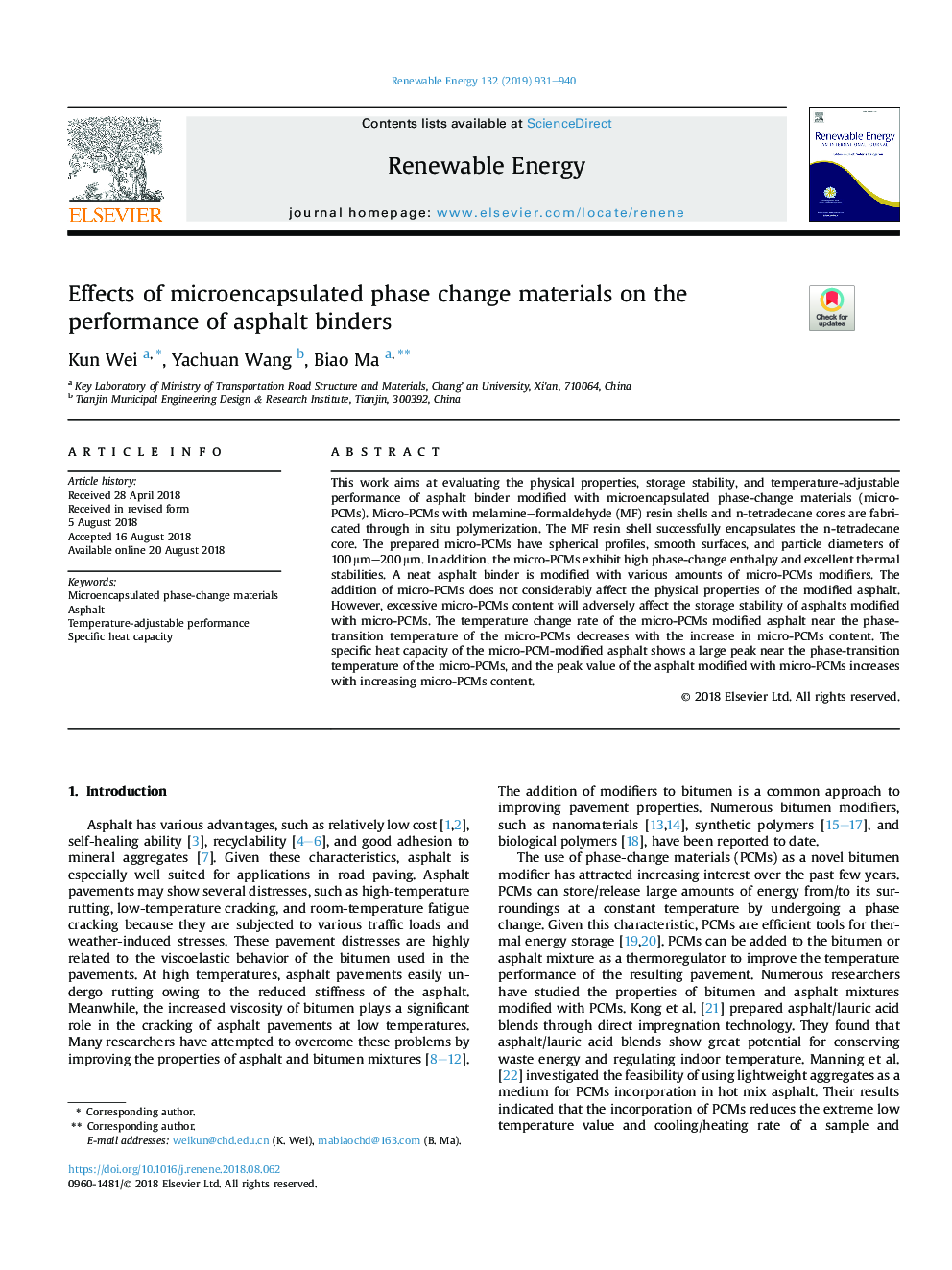| Article ID | Journal | Published Year | Pages | File Type |
|---|---|---|---|---|
| 11001196 | Renewable Energy | 2019 | 10 Pages |
Abstract
This work aims at evaluating the physical properties, storage stability, and temperature-adjustable performance of asphalt binder modified with microencapsulated phase-change materials (micro-PCMs). Micro-PCMs with melamine-formaldehyde (MF) resin shells and n-tetradecane cores are fabricated through in situ polymerization. The MF resin shell successfully encapsulates the n-tetradecane core. The prepared micro-PCMs have spherical proï¬les, smooth surfaces, and particle diameters of 100â¯Î¼m-200â¯Î¼m. In addition, the micro-PCMs exhibit high phase-change enthalpy and excellent thermal stabilities. A neat asphalt binder is modified with various amounts of micro-PCMs modifiers. The addition of micro-PCMs does not considerably affect the physical properties of the modified asphalt. However, excessive micro-PCMs content will adversely affect the storage stability of asphalts modified with micro-PCMs. The temperature change rate of the micro-PCMs modified asphalt near the phase-transition temperature of the micro-PCMs decreases with the increase in micro-PCMs content. The specific heat capacity of the micro-PCM-modified asphalt shows a large peak near the phase-transition temperature of the micro-PCMs, and the peak value of the asphalt modified with micro-PCMs increases with increasing micro-PCMs content.
Keywords
Related Topics
Physical Sciences and Engineering
Energy
Renewable Energy, Sustainability and the Environment
Authors
Kun Wei, Yachuan Wang, Biao Ma,
